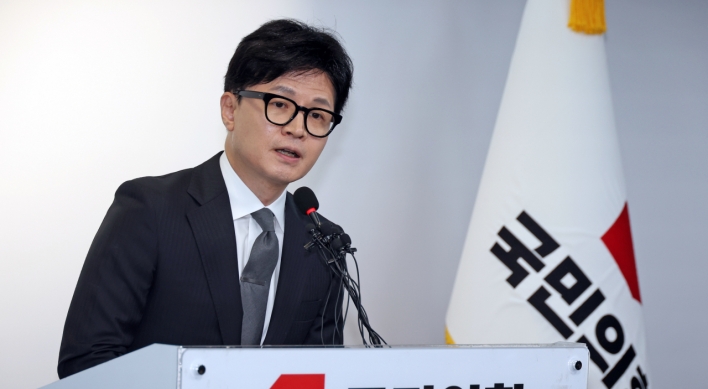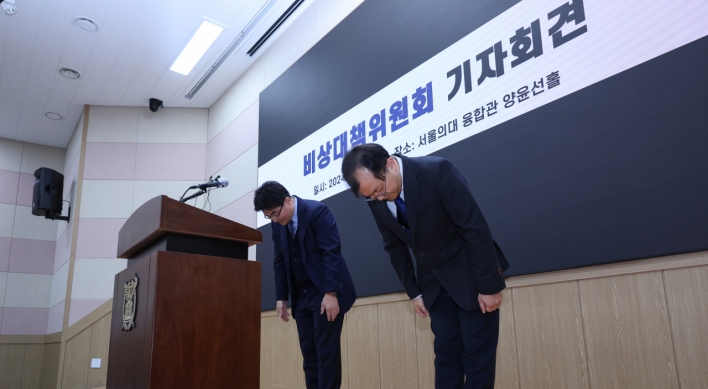South Korea needs to frame its macroeconomic policy in order to stabilize overall economic situations as the country still faces high global uncertainties that could impede its recovery and growth, the Finance Ministry said Thursday.
A slowing private-sector recovery, deepening fiscal debt problems in advanced nations and belt-tightening by emerging countries will also likely combine to further slow global economic growth, the ministry said.
“The global economy is expected to stay on a low-growth track for the time being,” the ministry said in its annual report that assesses macroeconomic situations at home and abroad.
“Volatility in the financial market is also expected to continue for some time, driven by the eurozone debt problems and the world economic situation,” it added.
The ministry voiced concern that a global economic slowdown and unstable financial situations could pose a challenge for South Korea’s economy by hurting its exports and subsequently impacting domestic demand. In particular, it cited inflation and unemployment as two factors that could deteriorate.
“The top priority in running macroeconomic policy should be placed on keeping stability in economic situations,” the ministry said. “It is also important to stay vigilant on internal and external economic trends, while responding to changing situations in a swift and flexible manner.”
To better brace for growing external risks, the ministry said the government should closely watch foreign capital movement in and out of the financial market.
It also placed an emphasis on securing an “appropriate level” of foreign reserves and a “sufficient amount” of liquidity through many methods, including currency swap deals with major economies.
The emphasis on securing enough foreign capital is in line with the government’s recent back-to-back moves to expand bilateral currency swap lines with its neighboring economic powers.
Last month, South Korea agreed with Japan to expand the won-yen currency swap line more than five-fold to $70 billion. It also reached agreement with China to expand their won-yuan swap line to the equivalent of $56 billion.
The ministry underlined the importance of keeping tabs on foreign investment in domestic bond markets and staying on top of the nation’s overall short-term debt situation. It called for more effort to ease volatility in capital flows that could possibly be sparked by speculative investment in the nation’s financial markets.
(Yonhap News)
A slowing private-sector recovery, deepening fiscal debt problems in advanced nations and belt-tightening by emerging countries will also likely combine to further slow global economic growth, the ministry said.
“The global economy is expected to stay on a low-growth track for the time being,” the ministry said in its annual report that assesses macroeconomic situations at home and abroad.
“Volatility in the financial market is also expected to continue for some time, driven by the eurozone debt problems and the world economic situation,” it added.
The ministry voiced concern that a global economic slowdown and unstable financial situations could pose a challenge for South Korea’s economy by hurting its exports and subsequently impacting domestic demand. In particular, it cited inflation and unemployment as two factors that could deteriorate.
“The top priority in running macroeconomic policy should be placed on keeping stability in economic situations,” the ministry said. “It is also important to stay vigilant on internal and external economic trends, while responding to changing situations in a swift and flexible manner.”
To better brace for growing external risks, the ministry said the government should closely watch foreign capital movement in and out of the financial market.
It also placed an emphasis on securing an “appropriate level” of foreign reserves and a “sufficient amount” of liquidity through many methods, including currency swap deals with major economies.
The emphasis on securing enough foreign capital is in line with the government’s recent back-to-back moves to expand bilateral currency swap lines with its neighboring economic powers.
Last month, South Korea agreed with Japan to expand the won-yen currency swap line more than five-fold to $70 billion. It also reached agreement with China to expand their won-yuan swap line to the equivalent of $56 billion.
The ministry underlined the importance of keeping tabs on foreign investment in domestic bond markets and staying on top of the nation’s overall short-term debt situation. It called for more effort to ease volatility in capital flows that could possibly be sparked by speculative investment in the nation’s financial markets.
(Yonhap News)
-
Articles by Korea Herald



![[Exclusive] Korean military set to ban iPhones over 'security' concerns](http://res.heraldm.com/phpwas/restmb_idxmake.php?idx=644&simg=/content/image/2024/04/23/20240423050599_0.jpg&u=20240423183955)

![[Graphic News] 77% of young Koreans still financially dependent](http://res.heraldm.com/phpwas/restmb_idxmake.php?idx=644&simg=/content/image/2024/04/22/20240422050762_0.gif&u=)




![[Pressure points] Leggings in public: Fashion statement or social faux pas?](http://res.heraldm.com/phpwas/restmb_idxmake.php?idx=644&simg=/content/image/2024/04/23/20240423050669_0.jpg&u=)









